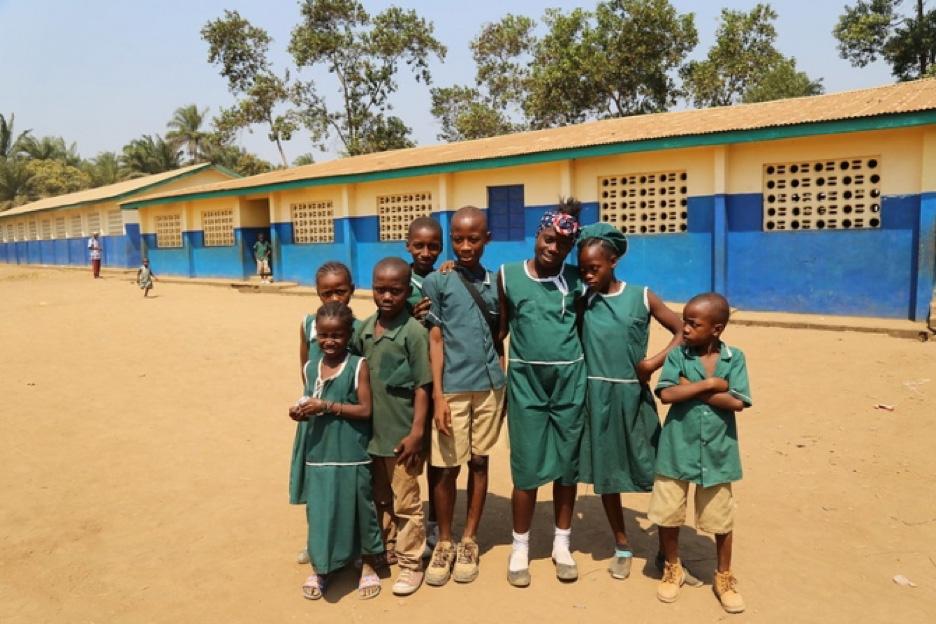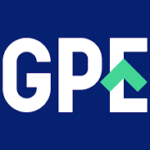Why funding education for all children is the path to a better world and a sustainable recovery
 Whether you are parenting a 12-year-old girl in Los Angeles whose reading skills have slipped during this exhausting year of Zoom school or in a remote Zambian village where she is trying to learn from educational radio broadcasts while doing chores, the last year has shown both the value and vulnerability of our education systems. Whether in LA or Zambia, this has been our shared reality, exacerbating pre-existing inequities. And without prioritizing education in the COVID recovery, societies will become even more unequal and fragile. We need a new type of global solidarity and international cooperation.
Whether you are parenting a 12-year-old girl in Los Angeles whose reading skills have slipped during this exhausting year of Zoom school or in a remote Zambian village where she is trying to learn from educational radio broadcasts while doing chores, the last year has shown both the value and vulnerability of our education systems. Whether in LA or Zambia, this has been our shared reality, exacerbating pre-existing inequities. And without prioritizing education in the COVID recovery, societies will become even more unequal and fragile. We need a new type of global solidarity and international cooperation.
Even before the COVID-19 pandemic upended education, we faced a profound learning crisis. About a quarter of a billion children were already out of school, and an estimated 20 million secondary school girls may never return after schools reopen (1). In the poorest countries, as many as 8 out of 10 primary school students don’t master even basic reading skills (2). And steep economic challenges brought on by the pandemic threaten already tenuous domestic financing for education. And it’s estimated that 24 million children and youth will not return to their studies because of the economic impact of the pandemic.
That is why we must raise $5 billion for education in the poorest countries through the Global Partnership for Education’s (GPE) Raise Your Hand campaign. An equally important campaign goal is to ensure that domestic education expenditure in GPE partner countries is prioritized and protected to, at least, the global benchmark of 20% of total public expenditure, and increased so we leave no child behind. So while the lion's share of financing for education in developing countries comes from governments themselves, it remains inadequate and budgets are at further risk from COVID-19. Catalytic funding from GPE is needed to ensure the right to education for all and enable domestic finance to go further.
If we want to build a sustainable and more just world, one in which every child can achieve his or her potential, WE MUST step up to ensure education systems have the necessary resources for the COVID-19 recovery, and so economies can rebound. If the pandemic has taught us anything, it is that we are deeply connected to one another and have a common future: what happens in Wuhan, China or Lusaka, Zambia can be felt around the world. The financial ask from GPE to the G7 and others is a relatively small amount of money compared to the trillions that donor governments have mobilized against the health and economic impacts of the pandemic. Success at the Global Education Summit in July will be catalytic to securing long-term and sustainable education financing for the world’s lower-income countries.
“A vaccine might save our lives, but that is not enough--we want lives worth living,” says Aya Chebbi, the former African Union special envoy on youth. “I’m asking every world leader to raise their hand for GPE so that young people in Africa and elsewhere have the chance of a safe and quality education with dignity.”
The only global partnership and fund dedicated to helping children in lower-income countries get a quality education, GPE recently launched Raise Your Hand to transform education systems in as many as 90 countries, which are home to 1 billion children.
A fully funded GPE will help enroll almost 90 million more children in school and enable 175 million girls and boys to get a chance to learn. With its innovative financing tools such as the GPE Multiplier, the partnership will use funds collected during the campaign to leverage an additional $3 billion in donor financing for education, therefore also making domestic financing go further. A fully funded GPE would also boost discretionary finance available to GPE low-income partner countries by nearly one-third (27%). And boost accountability for how education resources are spent.
All this funding will enable partner governments to reform their education systems, train teachers, invest in new and innovative curricula, and find creative ways to deliver education to the most marginalized learners (including girls and children with disabilities), schools, and regions.
The ripple effect of revitalized education systems would add an estimated $164 billion to the economies of GPE partner countries, lift 18 million people out of poverty, and protect 2 million girls from early marriage (2).
And in a world grappling with growing wealth inequality and pernicious racial and ethnic discrimination and conflict, this transformative funding campaign will advance equity.
“Being resolutely focused on ‘equal learning opportunities,’ GPE is planting the very roots that guarantee equitable growth in education for decades to come, across social, digital and economic divides,” says Macky Sall, President of the Republic of Senegal, a GPE partner country.
In the past two decades, we have made major strides in delivering quality education to the world’s children. The number of out-of-school children, while still unacceptably high, has fallen, and the gender gap is closing, especially in primary school enrollment and completion rates.
Since its founding in 2002, GPE has helped more than 160 million more children go to school, put twice as many girls on the path to equality, and helped governments save $6 billion through efficiencies in spending, redirecting that money to where it’s needed most.
But this progress is fragile. What the world has lost during the pandemic is great. Leaving education and its financing out of pandemic responses and recovery will be devastating to countries and economies and will result in deep, sweeping, and long-lasting inequalities. Without an infusion of financing, 825 million children and young people in low- and middle-income countries will not gain the skills they need to successfully enter the job market by 2030 (2).
GPE and its partner countries know how to keep making progress. GPE focuses on doing the right thing at the right time in the right places, and at a scale that ensures lasting change. Now, all we need is the right financing. We urge countries to answer the call to raise their hands for the world’s most marginalized children.
GPE is working hard with its partners to make the financing needed a reality - read our joint statement with the Global Campaign for Education (GCE) calling for more and better education financing, and take action here by asking your Members of Congress to support education funding, including support to the Global Partnership for Education.
Sources:
1: https://malala.org/newsroom/archive/malala-fund-releases-report-girls-education-covid-19
2: GPE Case for Investment 2021-25: Key Messages
Lissy Moskowitz serves as the Senior Donor Relations Lead at the Global Partnership for Education (GPE), the only multilateral partnership exclusively devoted to ensuring that all children in the world’s poorest countries receive a quality basic education. Lissy leads donor engagement for US, Canada, UK and Australia as well as outreach to civil society partners to ensure strong support for GPE from donor countries. Prior to joining GPE, Lissy served as Senior Manager for US Strategy at Gavi, the Vaccine Alliance, an international organization dedicated to saving children’s lives by increasing equitable use of vaccines in lower income countries from 2014 to 2020. Prior to Gavi, she was deputy policy director and general counsel at NARAL Pro-Choice America for more than five years. She received a B.A in political science from Barnard College and a J.D. from Fordham Law School.
Victoria Egbetayo is Regional Partnership Lead (Africa and Asia Pacific) at the Global Partnership for Education, and its chief representative to the African Union (AU). Victoria leads GPE’s partnership work with multilateral development banks, regional organizations, other strategic actors as well as outreach and support to civil society in the Africa and Asia Pacific regions to ensure strong support for education transformation in GPE partner countries, furthering of policy priorities and mobilization of more resources for education and GPE. As a seasoned development professional, Victoria has worked at the national, regional and international levels, focused primarily on development finance and strategic partnerships (in economic integration and trade, education financing, and private sector investment).
Prior to GPE, Victoria started her career as an urban planner, and worked in the field of environmental management for gender equality, community development, and livelihoods. All areas that help countries grow their economies, create jobs, and achieve progress in sustainable development. Previous roles include working with the African Union as Policy Advisor and Officer - Economic Integration, Regional Cooperation and Partnerships. Victoria has also worked with the Commonwealth Foundation, and led joint projects and partnerships with the UNDP, United Nations Economic Commission for Africa, AfDB, EU-Africa Partnership and the G7. Victoria holds a BSc in Anthropology and MSc (with distinction) in Development Planning and Administration from the University College London (UCL).
Learn more about: Global Education Financing

